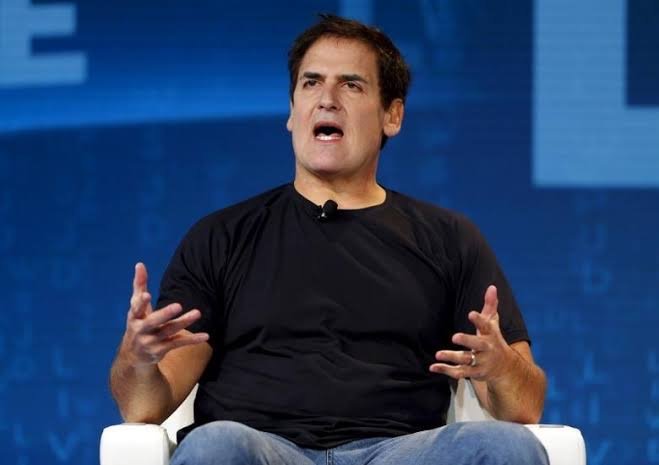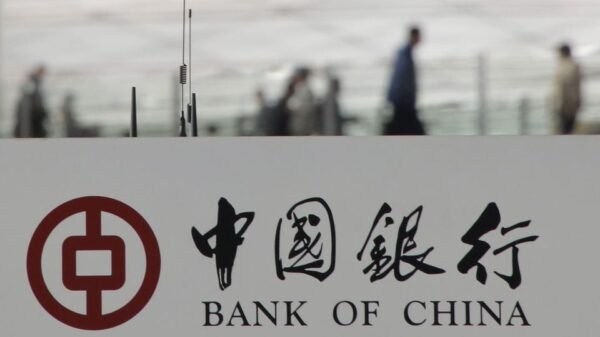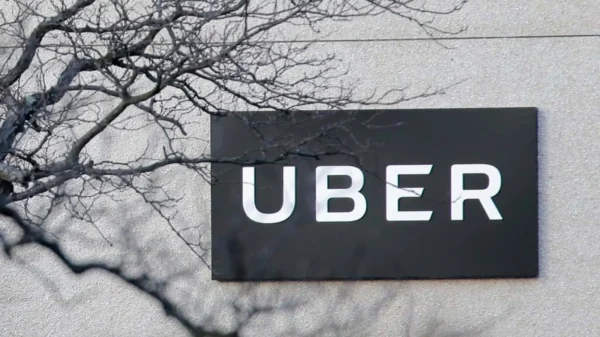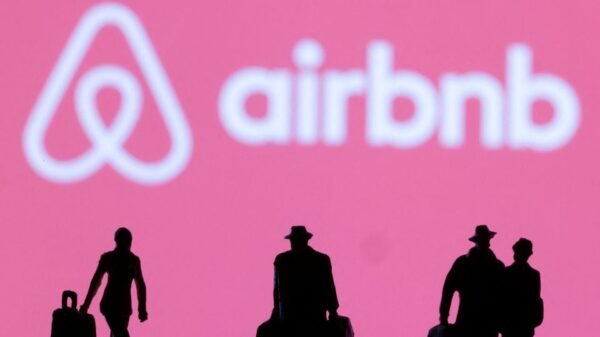Gig Economy Impact
From Silicon Valley tycoons to Wall Street moguls, billionaires have been quick to jump on the gig economy bandwagon. But what impact has this trend had on their companies and the broader economy
Key takeaways:
- The gig economy has benefited billionaires by creating new opportunities for gig workers and generating wealth.
- However, it has also raised concerns about wealth inequality, job security, and worker exploitation.
- Policies and regulations are needed to protect the rights of gig workers and promote sustainable economic growth.
- Billionaires can drive innovation and create new opportunities for gig workers by investing in new technologies and industries.
- The future of the gig economy and its impact on billionaires and their companies will depend on how we address these challenges and opportunities.
The gig economy has been a buzzword in the business world for quite some time now. Its rise has disrupted traditional work arrangements and has allowed workers to take on contract-based work or freelance assignments. But what does this mean for billionaires and their companies? On one hand, the gig economy offers flexibility and cost savings that are attractive to businesses of all sizes, including those owned by billionaires. But on the other hand, the ethics of the gig economy and the impact it has on workers are controversial topics that cannot be ignored.
Through research, we’ve found that some billionaires have invested in or created gig economy companies, seeing the potential for significant returns on investment. However, the criticisms of the gig economy cannot be overlooked. The lack of job security, lower wages, and lack of benefits have left many workers vulnerable. The involvement of billionaires in the gig economy has also raised concerns about the exploitation of workers and the widening income inequality gap.
In this article, we will dive deeper into the impact of the gig economy on billionaires and their companies.
The Gig Economy: A Brief Overview
The gig economy is a term that is thrown around a lot in today’s business world, but what exactly is it? In simple terms, the gig economy refers to a labor market where temporary, freelance, or contract-based work is the norm. Workers in the gig economy are often referred to as “gig workers” or “independent contractors.”
The gig economy has been made possible by the rise of digital platforms that connect businesses with gig workers. These platforms include the likes of Uber, Lyft, Airbnb, and Fiverr. The flexibility and cost savings associated with the gig economy have made it an attractive option for businesses of all sizes, from startups to multinational corporations.
However, the gig economy is not without its drawbacks. One of the main criticisms of the gig economy is the lack of job security. Gig workers are not protected by traditional employment laws and are often seen as disposable by the companies they work for. Gig workers are also often paid less than traditional employees and are not entitled to benefits like health insurance, paid time off, or retirement plans.
Despite these drawbacks, the gig economy has continued to grow at an astonishing rate. According to a report by the Freelancers Union and Upwork, 35% of the US workforce was made up of gig workers in 2020. This number is expected to continue to rise in the coming years.
So, what does this mean for billionaires and their companies? The gig economy offers a lot of benefits to businesses, including cost savings, access to a larger pool of talent, and increased flexibility. Many billionaires have taken notice of these benefits and have invested in or created gig economy companies.
For example, billionaire investor Peter Thiel has invested in companies like Lyft and Airbnb. Another billionaire, Mark Cuban, has invested in companies like TaskRabbit and Postmates. These investments have paid off for these billionaires, as these companies have seen significant growth and valuation in recent years.

Photo: Mark Cuban/ Reuters
However, the involvement of billionaires in the gig economy has not been without controversy. The ethical concerns surrounding the gig economy and the exploitation of gig workers have led many to question the involvement of billionaires in this industry. Some have accused these billionaires of profiting off the backs of underpaid and overworked gig workers.
The gig economy has had a significant impact on the lives of billionaires and their companies. While the benefits of the gig economy cannot be ignored, the ethical concerns surrounding the industry must be addressed. As the gig economy continues to grow and evolve, it will be interesting to see how billionaires and their companies adapt and respond to these changes.
Billionaires and the Gig Economy: How They Benefit
The gig economy has been a game-changer for businesses of all sizes, including those owned by billionaires. The rise of digital platforms connecting businesses with gig workers has opened up a world of opportunities for entrepreneurs and investors alike. In this section, we will explore how billionaires and their companies benefit from the gig economy.
Firstly, the gig economy offers cost savings for businesses. Traditional employment arrangements often come with a lot of overhead costs, such as employee benefits, office space, and equipment. By using gig workers, businesses can save money on these expenses. For billionaires and their companies, these cost savings can translate into significant profits.

Photo: Peter Thiel/ Reuters
Secondly, the gig economy allows for increased flexibility. In traditional employment arrangements, employers often have to commit to long-term contracts with employees. However, in the gig economy, businesses can hire workers on a project-by-project basis. This flexibility allows businesses to scale up or down quickly, depending on their needs. For billionaires and their companies, this flexibility can be a game-changer, as they can adapt to changes in the market quickly.
Thirdly, the gig economy offers access to a larger pool of talent. Traditional employment arrangements often limit the pool of talent available to businesses. However, in the gig economy, businesses can hire workers from all over the world, regardless of location. This opens up a world of opportunities for businesses and allows them to find the best talent for their needs. For billionaires and their companies, access to a larger pool of talent can be a significant advantage, as they can find the best and brightest workers to help grow their businesses.
Lastly, the gig economy has created new investment opportunities for billionaires. Many billionaires have invested in or created gig economy companies, seeing the potential for significant returns on investment. These investments have paid off for many billionaires, as gig economy companies have seen significant growth and valuation in recent years.
However, the involvement of billionaires in the gig economy has not been without controversy. The criticisms of the gig economy, such as the lack of job security and low wages for gig workers, have raised ethical concerns. Some have accused billionaires of profiting off the backs of underpaid and overworked gig workers.
The gig economy offers many benefits for billionaires and their companies. The cost savings, flexibility, access to a larger pool of talent, and investment opportunities have made the gig economy an attractive option for entrepreneurs and investors alike. However, the ethical concerns surrounding the gig economy cannot be ignored. As the gig economy continues to grow and evolve, it will be essential to find a balance between the benefits and drawbacks of this industry.
Billionaires and the Gig Economy: Challenges and Controversies
While the gig economy offers many benefits for billionaires and their companies, it also presents significant challenges and controversies. In this section, we will explore some of the criticisms and concerns surrounding the involvement of billionaires in the gig economy.
One of the most significant challenges is the issue of job security. Gig workers are often classified as independent contractors, which means they do not receive the same legal protections and benefits as traditional employees. This lack of job security has raised concerns about the exploitation of gig workers, who may be forced to work long hours without benefits or job security.
Another significant challenge is the issue of low wages for gig workers. Many gig workers earn less than minimum wage and do not receive benefits such as health insurance or paid time off. This has led to accusations of billionaire investors profiting at the expense of underpaid and overworked gig workers.
The controversy surrounding the gig economy has also led to legal battles between gig economy companies and their workers. In some cases, gig workers have sued companies for misclassifying them as independent contractors and denying them employee benefits. These legal battles have highlighted the need for clearer regulations and legal protections for gig workers.
Furthermore, the gig economy has also raised concerns about the impact on traditional employment arrangements. As more businesses turn to gig workers, traditional jobs may become scarce, leading to job losses and economic instability. This has led to debates about the need for a safety net for gig workers and traditional employees alike.
Lastly, the involvement of billionaires in the gig economy has also raised concerns about wealth inequality. As gig economy companies grow and become more profitable, the majority of the profits may go to billionaire investors, while gig workers continue to struggle with low wages and job insecurity. This has led to calls for more equitable distribution of wealth and fairer treatment of gig workers.
The gig economy presents significant challenges and controversies for billionaires and their companies. The issues of job security, low wages, legal battles, impact on traditional employment, and wealth inequality are all important considerations in the gig economy debate. While the gig economy offers many benefits, it is important to address these challenges and controversies to create a more equitable and sustainable industry.
The Future of the Gig Economy and Billionaires’ Involvement
As the gig economy continues to grow, the involvement of billionaires is likely to increase. In this section, we will explore the potential future of the gig economy and the role that billionaires may play in it.
One of the most significant trends in the gig economy is the rise of platform-based businesses. Companies like Uber, Lyft, and Airbnb have disrupted traditional industries by providing consumers with on-demand services. These companies have also created new opportunities for gig workers, who can use these platforms to find work and supplement their income.
As the gig economy continues to evolve, we may see more platform-based businesses emerge. These companies could provide new opportunities for gig workers and create new industries. However, they may also face challenges, such as regulatory hurdles and competition from traditional businesses.
Billionaires are likely to play a significant role in the future of the gig economy. Many billionaires have already invested in platform-based businesses and are likely to continue doing so in the future. These investments could provide gig workers with new opportunities and create wealth for billionaires.
However, the involvement of billionaires in the gig economy also raises concerns about wealth inequality. As gig economy companies become more profitable, the majority of the profits may go to billionaire investors, while gig workers continue to struggle with low wages and job insecurity. This could exacerbate existing wealth disparities and lead to social unrest.
To address these concerns, there may be a need for new regulations and policies that ensure a more equitable distribution of wealth in the gig economy. This could include measures such as minimum wages and benefits for gig workers, as well as increased taxes on billionaires to fund social programs.
Another potential future trend in the gig economy is the rise of automation. As technology advances, some gig jobs may be replaced by automation, which could lead to job losses for gig workers. However, it could also create new opportunities for gig workers in fields such as programming and data analysis.
The involvement of billionaires in the gig economy could also drive innovation and entrepreneurship. Billionaires may invest in new technologies and industries that create new opportunities for gig workers and drive economic growth. However, it is important to ensure that this growth is sustainable and benefits all stakeholders, not just billionaires.
The future of the gig economy is likely to be shaped by the involvement of billionaires. While this involvement could provide new opportunities for gig workers and drive economic growth, it also raises concerns about wealth inequality and job security. It is important to address these concerns through new regulations and policies that ensure a more equitable distribution of wealth in the gig economy.
In conclusion, the gig economy has had a significant impact on the lives of billionaires and their companies. While it has provided new opportunities for gig workers and created wealth for billionaires, it has also raised concerns about wealth inequality and job security.
As the gig economy continues to evolve, it is crucial to address these concerns and ensure that it benefits all stakeholders. This could include new regulations and policies that protect the rights of gig workers, ensure fair wages and benefits, and promote sustainable economic growth.
It is also important to recognize the potential of the gig economy to drive innovation and entrepreneurship. Billionaires can play a significant role in this by investing in new technologies and industries that create new opportunities for gig workers and drive economic growth.
Ultimately, the future of the gig economy and its impact on billionaires and their companies will depend on how we address the challenges and opportunities that arise. By working together to create a more equitable and sustainable gig economy, we can ensure that it benefits everyone, not just the wealthy few.
































































Comment Template